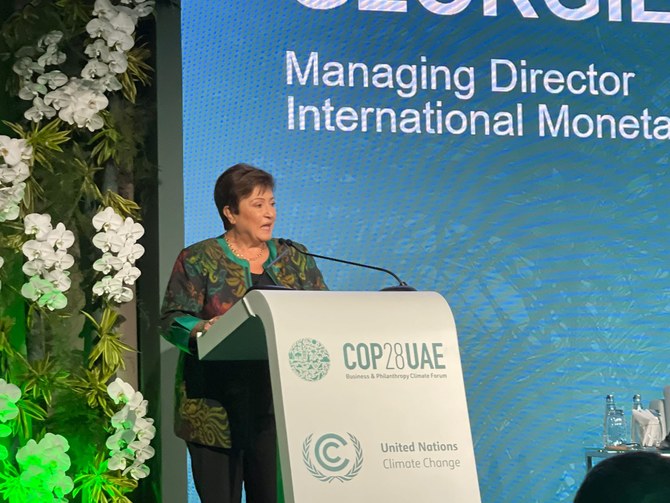The head of the International Monetary Fund has said that diverting the trillions of dollars by which the world subsidises fossil fuel production each year, and putting an implicit price on carbon emissions, would generate the vast amounts of cash needed to tackle the climate crisis.
Governments have been put off explicitly pricing carbon by the potential unpopularity of new carbon taxes, which have become favourite targets of anti-climate politicians and parties around the world, from the US and Australia to Europe and the UK.
Kristalina Georgieva, who is the managing director of the IMF, said that it was possible to achieve the same result – of making high-carbon activities reflect their true costs to society – using regulation, and by cutting the bad subsidies that encourage fossil-fuel use.
“We have been slow on a very important policy thought, which is the incentive for investors by still tolerating high levels of fossil-fuel subsidies,” she told the Guardian in an interview. “And [the world has made this worse] by being still fairly slow on introducing carbon pricing, and giving a trajectory for this carbon price upward.”
Monday was finance and trade day at the UN Cop28 climate summit in Dubai, with governments, finance institutions and private sector investors discussing new initiatives to help find the trillions needed to shift the world to a low-carbon economy. There were few substantial announcements of new cash, however, as most governments had made their contributions to the loss and damage fund, now standing at around $700m (£556m), in the first week of the conference.
Read also: Report: $700m pledged to loss and damage fund at Cop28 less than 0.2%
Studies have shown that trillions are needed around the world each year in investment in renewable energy and other low-carbon technology.
Lord Nicholas Stern and Vera Songwe found that developing countries alone, excluding China, will need more than $2tn (£1.6tn) a year by 2030, to cut emissions and cope with the impact of extreme weather. These sums seem huge, but are relatively small in the context of a global economy that is worth about $450tn (£358tn).
The IMF calculated that the direct and indirect subsidies that go towards fossil fuels, even without counting proven impacts such as health costs, had reached more than $7tn (£5.56tn), driven to record levels by governments’ reactions to the cost of living crisis this summer.
Reforming these would release resources that could be poured into renewable energy and other low-carbon technologies, stimulating the market for “clean” growth, said Georgieva. On the “flip side”, she added, putting in place a carbon price would penalise high-carbon investment.
Economists have also argued for decades that pricing carbon is the most effective way to lead economies to a shift away from fossil fuels.
“The evidence is first it works,” said Georgieva, a former chief executive of the World Bank and a leading European commissioner, before she took on her current role in 2019. “When you put a price on carbon, decarbonisation accelerates. The Europeans introduced the emission trading scheme [in 2005] and they have been growing and yet emissions went down by 37%. You see the same thing in Canada with their carbon tax.”
Story was adapted from the Guardian.
